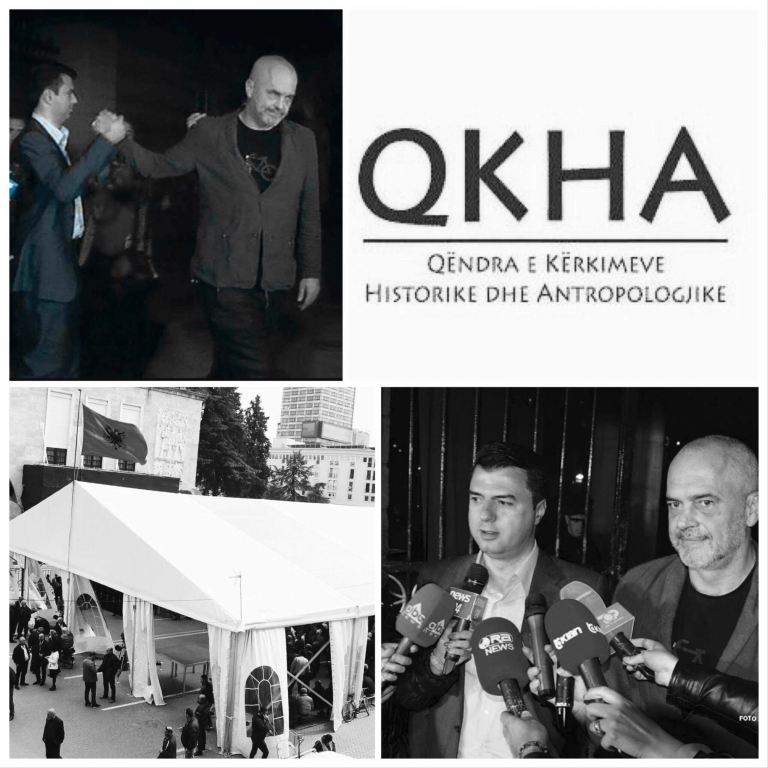Political clientelism and its influence on elections in Albania (results from HORIZON 2020 INFORM)
21 March 2018, 6:00 pm–8:00 pm

Event Information
Open to
- All
Availability
- Yes
Organiser
-
South-East European Studies Seminar Series
Location
-
Room 433, 4th Floor, UCL SSEES, 16 Taviton Street, London, WC1H 0BW
The organising of free and fair elections in Albania has been an important requirement from European Commission, related to the process of European Integration. The electoral code has been modified and refined before each election; 2013 and 2017 elections have been considered free and fair from a formal legal point of view, yet skepticism keeps being present. On the one hand EU needs arguments that reforms in political and judicial field are sustainable, meaning that they are not only formal adoptions of EU rules, including elections. On the other hand, local actors indicate that these reforms, as is the case with elections and electoral reforms, are being undermined, although the formal rules and procedures are being respected. In this presentation we will outline some of the main findings from our ethnographic research, conducted from February 2017 to September 2017, which aimed precisely at looking "from below" the ways in which informal and clientelist practices influenced the conduction of central elections held in June 2017. This research was conducted during the first half of implementation of the Horizon 2020 project ‘Closing the gap between formal and informal institutions in the Balkans’ (INFORM).
Armanda Hysa is an anthropologist, project leader of the CHAR team, is co-founder and director of executive board of Qendra e Kerkimeve Historike dhe Antropologjike – Center for Historical and Anthropological Research, Albania. She is also a researcher at the Department of Ethnology, Institute of Cultural Anthropology and Study of Arts, Centre of Albanological Studies. She defended her PhD in 2012 at the University of Tirana. From October 2012 to October 2014 she has been research and teaching fellow, Alexander Nash Fellow in Albanian Studies, at School of Slavonic and East European Studies, University College London. Her research interests include urban Ottoman heritage, with specific focus on Balkan charshiya (old bazaars), identity and ethnic relations in Macedonia, and interethnic relations between Serbs and Albanians, with specific focus on the recent phenomenon of mixed marriages between Serbian men of Southern Serbia with Albanian women of Northern Albania.
Gentiana Kera is a social historian, is co-founder of Qendra e Kerkimeve Historike dhe Antropologjike – Center for Historical and Anthropological Research, Albania. She is also a lecturer at the Department of History, Faculty of History and Philology, University of Tirana. In the period 2000 – 2006 Dr. Kera has been a researcher at the Center for Southeast History at the University of Graz. She is coeditor of the volume Albania. Family, Society and Culture in the 20th Century. LIT Verlag, Münster, 2012, together with Enriketa Papa Pandelejmoni and Andreas Hemming. Her research interests include demographic developments and socio-cultural urban history of SEE.
Enriketa Pandelejmoni is a social historian and a co-founder and director of Qendra e Kerkimeve Historike dhe Antropologjike – Center for Historical and Anthropological Research, Albania. She is also a lecturer at the Department of History, Faculty of History and Philology, University of Tirana. Dr In the period 2000 – 2007 Dr. Pandelejmoni has been a researcher at the Center for Southeast History at the University of Graz. She defended her PhD in 2013 at the University of Graz. Her research interests include demographic developments, socio-cultural urban history of SEE, and memory of the communist period in Albania. She is coeditor of the volume Albania. Family, Society and Culture in the 20th Century. LIT Verlag, Münster, 2012, together with Gentiana Kera and Andreas Hemming.
All are welcome, registration is not required.
 Close
Close

